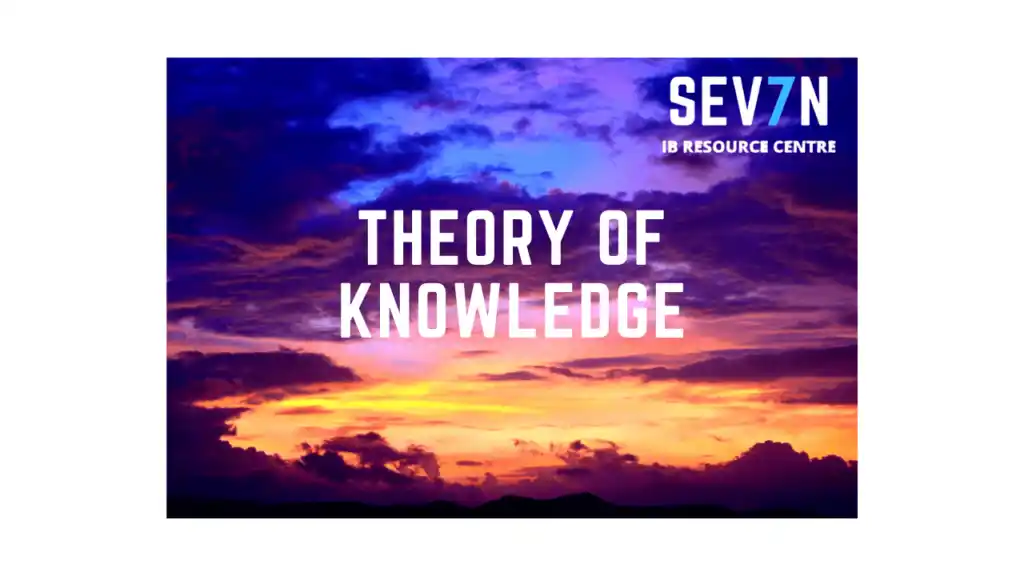What is TOK?
The Theory of Knowledge, an inherent part of the IBDP core with its compulsory three elements as TOK, CAS and the extended essay, invites a deep reflection in the thought process of the candidates. With the essence of coherence as the common view like in CAS and the extended essay, it aims to support the interconnectedness of learning, concurrency of learning, syncing of the IB continuum with the learner profile and a broader perspective of the subject disciplines.
Get In Touch
Experience issues in adjusting things and stood up not knowing which one to apply in a given situation?
Our private Sev7n IB material science coaches are great at clarifying the most troublesome conditions. They have ideas instinctually through redid exercise designs and customized showing style. As per the understudy’s mentoring needs and learning inclinations. Moreover, with our IB test readiness on the web, exercises will be centered around the theme generally pertinent to the understudies. Our private material science coaches know about the test leading group of the school or University. Also, they guarantee that understudies get the most ideal direction to show signs of improvement grades. Our coaching meeting starts with a balanced meeting between the mentor and understudy. To talk about what the understudy needs and together devise on a long term system, to assist them with accomplishing it.
IB Physics Tutoring – Benefits To Students
- Understudies can get to our virtual study halls anyplace, whenever
- Understudies get the opportunity to learn through study hall exercises, Periodic formative, and complete appraisals, worksheets, and tests
- Home understudy request with commonsense task interfaces logical thoughts with certifiable applications
- Understudy driven coaching – adaptable
TOK 2021 Syllabus

The uniform trait in the core ensures that the three elements are all spinned with the thread of coherence where they support and are supported by the academic disciplines, foster international-mindedness in respecting others’ culture and perspectives with the pride in self-identity, and develop self-awareness.
Beyond mere learning of a specific body of knowledge, TOK is more to do with the methodology of ‘learning or knowing how to know what one claims to know’. It helps candidates to critique their knowledge claims (KCs) or assertions on knowledge to explore the open knowledge questions (KQs).
However, it does not require any prior learning or background in terms of specific subjects. It requires at least hundred instruction hours to be completed.
WOK
There are eight specific ways of knowing (WOKs), out of which studying four in depth is necessary. The WOKs are not studied in isolation but in relation to the areas of knowledge (AOKs) and the individual knower.
The WOKs are language, sense perception, emotion, reason, imagination, faith, intuition, and memory. They underlie the methodology of AOKs and provide a strong basis for personal knowledge.
AOK
Areas of knowledge (AOKs) are the specific branches of knowledge, each with a distinct nature which involves different methods of gaining knowledge. There are eight of them, out of which studying six is appropriate. They are mathematics, the natural sciences, the human sciences, the arts, history, ethics, religious knowledge systems, and indigenous knowledge systems.
The knowledge framework
The knowledge framework is a device for exploring the areas of knowledge by identifying the distinctive trait of each AOK as a key area of the five interacting components which are knowing about knowing, WOKs, roles of WOKs, AOKs and the assessment in the complex knowledge framework. The knowledge framework allows a deeper exploration of the AOKS and WOKs relationship.
Shared knowledge
Shared knowledge is highly structured, systematic in its nature and collaborative. It is the product of more than one individual and is mainly bound into distinct AOKs. Being shared and dynamic by nature it does not solely depend upon individual contribution, rather invites checks and amendments by other individuals. It adds on to the spirit of international-mindedness in exploration of the KQ.
Personal knowledge
Personal knowledge, on the other hand, depends on the personal experiences of individuals. It is constructed through personal experience, practice, personal involvement and is innately bound with specific individualised local circumstances like biography, interests, values, and so on. It is profoundly influenced by an individual perspective.
Unlike shared knowledge, personal knowledge is either not that easily communicable or even if communicable, not easily shared, because of the strong linguistic component in-built in it.
Aims, objectives and integration with learner profile-
The study of TOK aims to inculcate a deep thirst for knowledge in the self-regulated learners and develop a critical bent of mind in them so as to explore multiple plausible answers with a problem solving skill. It encourages the learners’ participation in a collaborative framework, thus inculcating in them the habit of open-mindedness, balance and ethical stance in personality to reconcile claims and counter claims while they aim to explore the KQ through its extraction and decontextualization from the real-world to the TOK world.
You may also like to read more about How to prepare a TOK presentation and TOK Essay
Check out a quick read on Extended Essay

We guarantee quality process
Let’s join our community today
Join SEV7N's vibrant community of elite educators—a collaborative space where innovation meets expertise. Share resources, discuss teaching strategies, and stay ahead of educational trends. Benefit from a support network that enhances your professional growth, enriches your teaching practices, and elevates your impact on students. It's not just a community; it's your gateway to educational excellence.